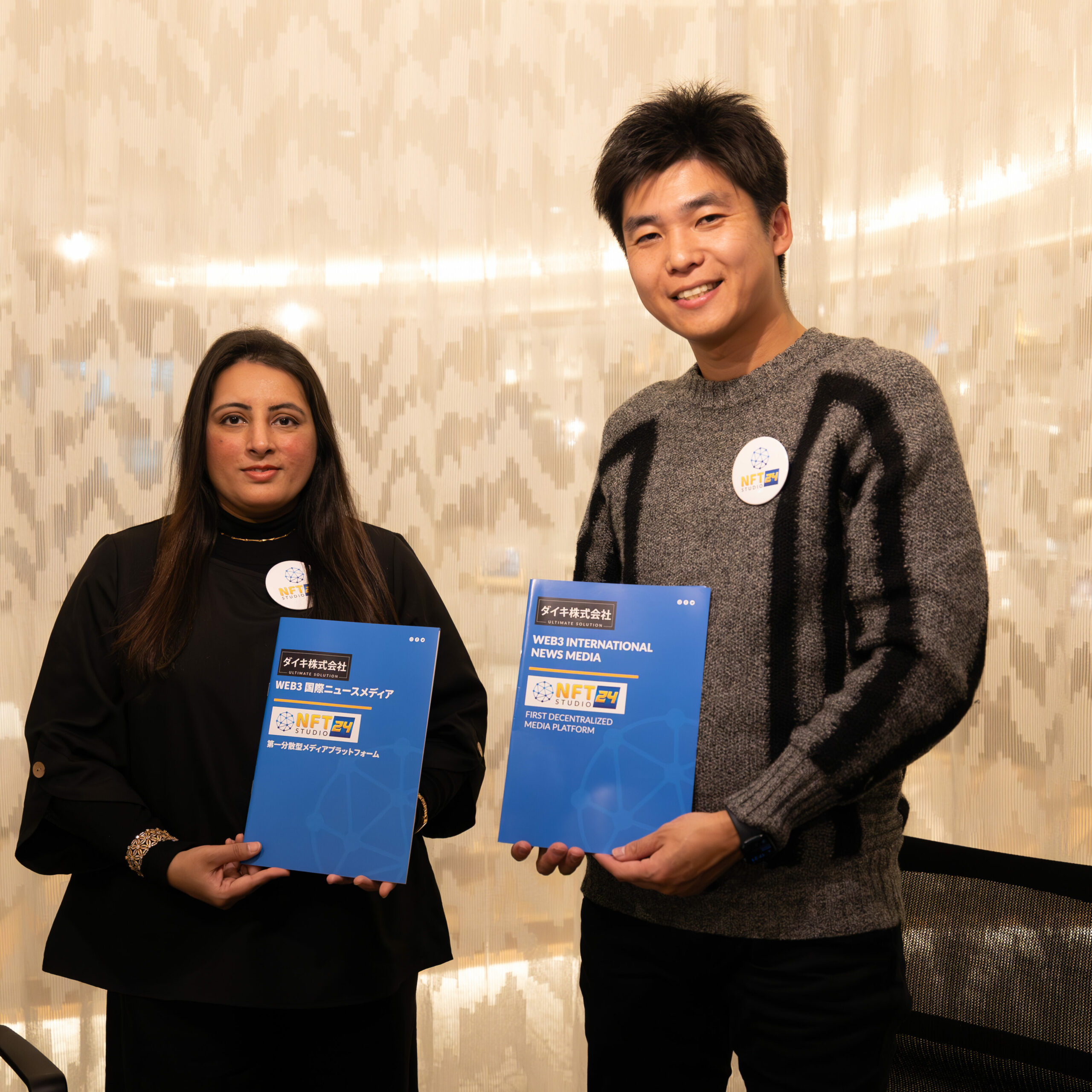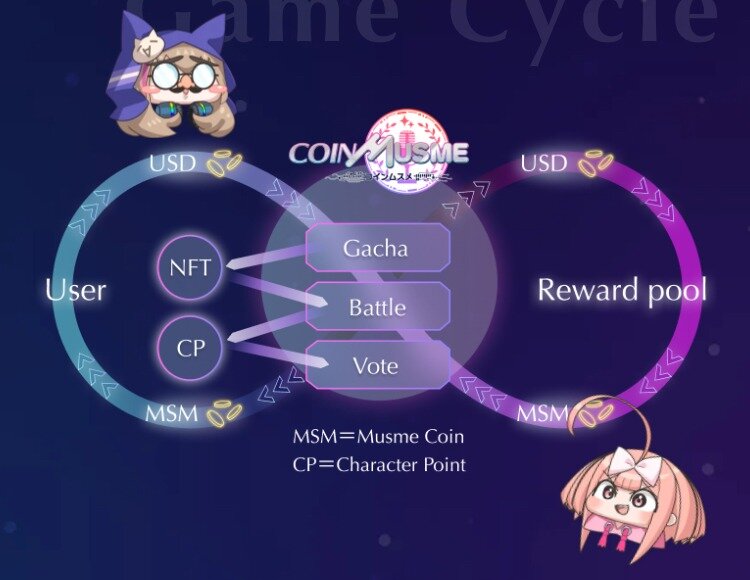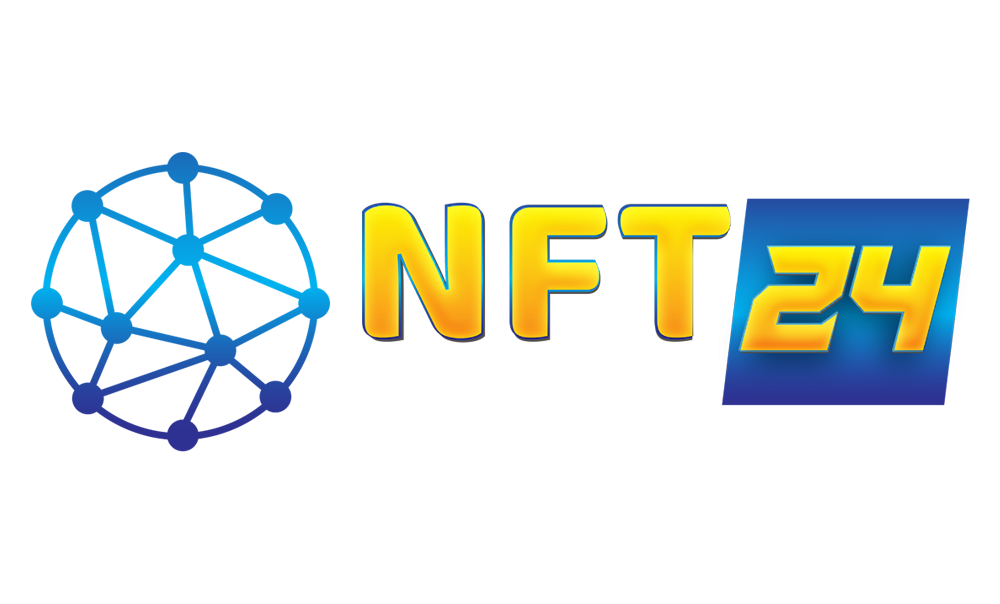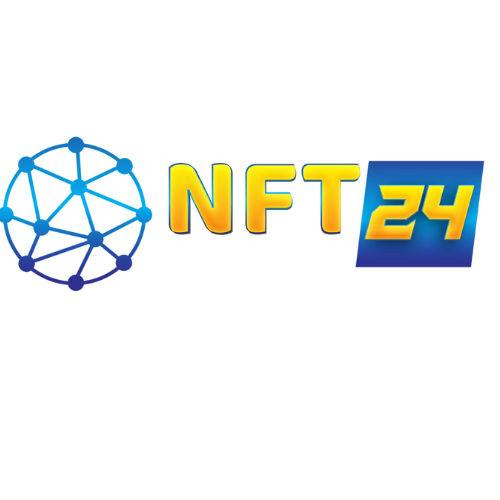NFTStudio24 Podcast Series presents an exclusive interview with Takuya Tsuji, CEO of Eureka Entertainment Co. Ltd. and Producer of Coin Musme, a Web3-based play-to-earn idol game inspired by cryptocurrencies. Hinza Asif, CEO of NFTStudio24 and President of Asia Web3 Alliance Japan, sits with Tsuji to discuss Japanese and Asian gaming culture and how builders can fundraise to build their own Web3 startups.
Japan is the hub of high gaming culture, known for its creative and artistic sophistication when it comes to gameplays. Coin Musme under Eureka Entertainment emerges as a futuristic game that employs blockchain and web3 technology to introduce a new era of gaming, inspired by cryptocurrencies.
Tsuji shares his enthusiasm for building Coin Musme and its core value that will eventually contribute to sustainability in the Web3 market. He also shares advice to Web3 startups or game builders about fundraising, creating a game, and maintaining its sales for a longer time.
Overcoming Web2 Gaming limitations in Web3: The Inspiration Behind Coin Musme
Before the creation of Coin Musme, Tsuji has been leading a smartphone game company, TechCross, founded 15 years ago. The company now has $70 million yearly sales with 300 employees, and successful Web2 game launches of Shinki PROJECT, Ayakashi Rumble! and Rejekuro !

Tsuji’s entry into Web3 space began when he felt that Web2 couldn’t provide what he was looking for due to the nature of the technology itself. Players couldn’t own anything and eventually lost interest because it held no value. He came to access the world of blockchain that offered something much more fruitful to not only game producers but also to the users.
“I made up my mind to go abroad, launch a new company, and start the Web3 business: Coin Musme.”
Coin Musme: A Play-to-Earn Game that Gives Pro and Beginners the Same Advantage by Luck !

Tsuji explains Coin Musme in detail to NFTStudio24. The game was designed inspired by Cryptocurrencies. Each game character is a personification of a major digital currency such as Bitcoin in the form of an idol.
Coin Musme has two concepts in its title. The first is Play-to-Earn which aims to maximize user returns.
The gameplay structure first ask users to play gacha to collect money, use it for operations, and return the rest of it to the users. “I think this is more attractive for gaming users, they get something in return.” Tsuji believes play-to-earn in the game is more sustainable. People can own their characters as NFTs and earn something in return.

The second concept is of Luck which involves benefits for both beginners and pro gamers through the element of luck. In order to maintain Coin Musme’s organic growth in the market, Tsuji and his team have offered a unique structure that favors all kinds of players.
“The key is to create a strong core value. If a strong player keeps winning, and a weak player keeps losing, they will lose interest. So, we have also added the Luck element using which all users can gain an advantage.”
Tsuji’s Experience as a Japanese Entrepreneur
Having built his own company, Tsuji holds a treasure of experience working in the Japanese business industry. Unlike other markets, the Japanese have their own culture and language that allows individuals to build their dreams.
As the President of Asia Web3 Alliance Japan, an association registered in Japan that aims to connect the Asia Web3 ecosystem with Japan, Hinza asked about his observations working in the Japanese market.
Tsuji shares that when he began his company, TechCross, 15 years ago, he was only a 23-year-university student studying law at the University of Tokyo. Although he wanted to become a lawyer, Tsuji changed his career to become an entrepreneur.
“At that time, becoming an entrepreneur wasn’t common, so starting a business was quite easy. But if I were a student now, it might be hard for me,” he said.
Tsuji sees the current market as quite challenging, especially for Web3 games, which have been recently declining in popularity due to a lack of interest. Still, he is resilient on building interactive Web3 games under Eureka Entertainment.

Early Stage Funding: Tsuji’s Aspirations as a University Student

Building games is hard, but gathering funds is probably the hardest part of all. Every developer sees a big challenge to attract investors in a new market. Tsuji felt the same when he began his entrepreneurial journey as a student.
When asked about how he gathered the support funding, Tsuji shared that he borrowed around $20,000 from his friends and family to buy two computers. Eventually, with blood, sweat, and tears, this $20k turned into a powerful company with $70 million in sales every year; aka TechCross.
“I wanted to become the top player as an Entrepreneur,” Tsuji said.
Tips on Fundraising for Web3 Gaming Startups
CEO Hinza asked for tips as to how current student developers can fundraise for their Web3 startups or gameplays, to which, Tsuji shared that the funds shouldn’t necessarily be in millions of dollars or more. You can always start with small funds and then build through it as long as you have a passion to move forward.
He also highlighted DAOs being a common use to gain funds. If you create a community that trusts and believes in your work through DAOs, it’s much easier to launch a sustainable Web3 game.
Hinza shared that currently, not many games survive for too long in the market, despite having a lot of investments. Tsuji shares that the key is to focus on the core value of the game for builders.
“You need to ask yourself, what are you creating? Why do you want to create it? And what’s the most interesting aspect of it that other rich games might not have?” he added.
Attracting users to Web3 game industry: Tsuji’s insights
Nowadays, many games are focused on onboarding or targeting Web2 users to enter Web3. Tsuji believes that this concept is not effective enough to bring more game users. “Web3 builders shouldn’t target only Web2 game users.”
He gives the example of STEPN, a popular game in Japan that doesn’t target just gaming users, instead, it has successfully brought all kinds of users into its ecosystem due to its diverse structure.
Tsuji says that Web3 cannot be compared with Web2 games because it has a long history and a strong customer base. Web3 games should find their own way to emerge as a powerful industry, just the way StepN has done.

The best way is to focus on the UI/UX, which Coin Musme is mainly built upon. “The titles should have a game-like experience for users,” he adds that builders should focus on what attracts the users and see how it aligns with the concept of blockchain technology. This is the current challenge that every developer should focus to overcome.
Furthermore, regarding the declining Web3 game market, he says this isn’t limited to just Web3 games. Many Web2 games don’t survive after a few years of popularity.
However, if the builders have a strong core value and an interesting rich game that resonates with users, the game is most likely to maintain its popularity for a long time, especially if it’s built on a blockchain. The key is to keep developing the game that aligns with user experience and trends. This is where the role of DAOs comes in. DAOs are essentially an important source for builders to understand their players’ mentality and preferences. Thus, Web3 should be taking a different approach than Web2.
Words of Advice from Tsuji to Web3 Game Builders
The Interview wrapped up with Tsuji sharing his advice for students and new entrepreneurs building Web3 startups:
“There are not many people who make game companies. There are some game creators who want to create games, but there aren’t many entrepreneurs who want to make games because it’s difficult. I think it’s good. In Web3, I encourage them to do so. I think it’s really good for young entrepreneurs to try out Web3 because this industry holds a high potential. The Web2 adults are struggling to understand this but Young people have the chance to make company in the new field.”
For more information on Coin Musme, visit the official website: coinmusme.com or follow official X account: https://twitter.com/coinmusme_en











